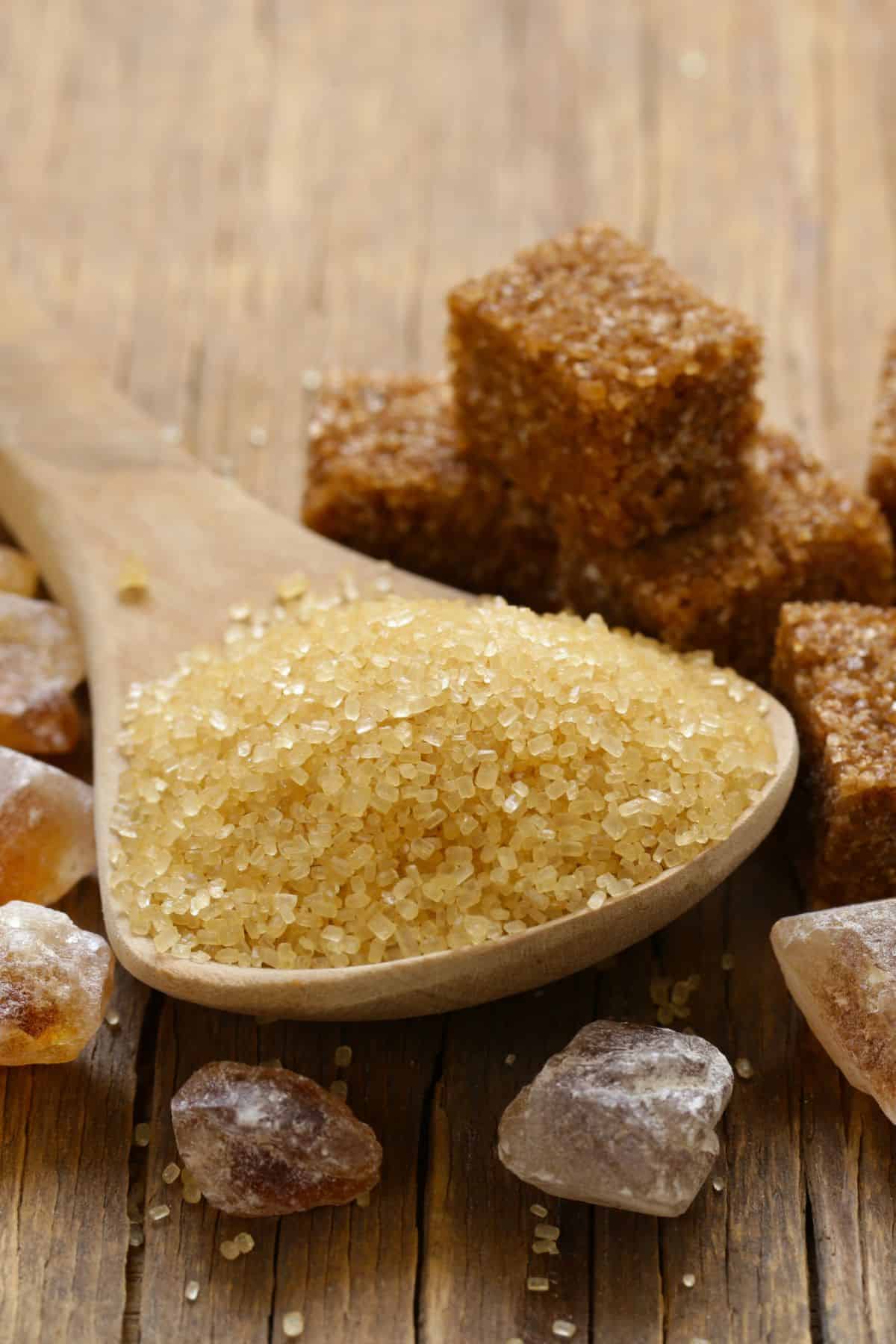The Scientific Research Behind Cane Sugar Processing: How Sweetness is Refined
The Scientific Research Behind Cane Sugar Processing: How Sweetness is Refined
Blog Article
A Thorough Overview of the Wellness and Economic Effects of Walking Stick Sugar Handling on Local Communities
Cane sugar processing plays a critical function in shaping the economic landscape of neighborhood neighborhoods, supplying work opportunities and stimulating ancillary sectors. Nonetheless, the wellness ramifications connected with high sugar intake can not be overlooked, as they add to climbing rates of obesity and diabetic issues. This nuanced dynamic welcomes a crucial exam of exactly how neighborhoods can maximize financial gains while addressing journalism health challenges they deal with. The expedition of lasting techniques and educational initiatives may just hold the trick to reconciling these contrasting rate of interests. What approaches might areas implement to accomplish this equilibrium?
Economic Advantages of Walking Stick Sugar Handling
Walking stick sugar handling supplies substantial financial advantages that expand beyond the immediate farming market. The cultivation and handling of sugarcane produce many work possibilities, from farming to production and distribution. This employment generation not only supports regional economies but additionally promotes neighborhood growth by offering stable earnings sources for family members.
Additionally, the sugar industry stimulates ancillary businesses, consisting of transportation, tools supply, and product packaging services (Cane Sugar Processing). As these fields expand, they contribute to a more robust economic structure, enhancing total area durability. The export possibility of refined walking stick sugar even more magnifies financial advantages, positioning regions as competitive players in global markets
Investment in modern-day processing facilities can bring about enhanced productivity and effectiveness, consequently decreasing waste and optimizing source use. This shift not only benefits the neighborhood economy however additionally supports sustainability initiatives by decreasing ecological influences.
Furthermore, the revenue generated from walking cane sugar handling can be reinvested in neighborhood framework, education and learning, and medical care, advertising all natural neighborhood growth. On the whole, the financial benefits of walking cane sugar handling are multifaceted, giving a structure for withstanding prosperity in agricultural areas.
Wellness Dangers Linked With Sugar Consumption
Excessive sugar consumption positions considerable health threats that require major focus. High consumption of included sugars, especially from processed drinks and foods, has been linked to countless health and wellness difficulties.
Furthermore, high sugar usage is connected with heart disease. Raised blood sugar levels can result in insulin resistance, a forerunner to various heart-related issues. Furthermore, sugar can have destructive effects on dental health, causing tooth cavities and periodontal disease, as germs in the mouth flourish on sugar, generating acids that deteriorate tooth enamel.
Moreover, arising study suggests a possible link between high sugar usage and mental wellness conditions, such as clinical depression and anxiousness. As neighborhoods face these health and wellness dangers, it ends up being important to promote understanding and urge much healthier dietary options. Dealing with sugar usage is crucial not only for specific health but likewise for the general health of local areas, emphasizing the need for thorough public health and wellness approaches.
Environmental Effects of Sugar Production
Often overlooked in discussions regarding sugar's ramifications is the considerable ecological influence of sugar manufacturing. The farming of sugarcane commonly necessitates considerable land usage, bring about logging, loss of biodiversity, and disturbance of local environments. The conversion of woodlands and wetlands into sugar haciendas can cause environment devastation, threatening numerous species and modifying environmental balance.
In addition, sugar production is resource-intensive, consuming substantial amounts of water for watering. This can cause exhaustion of local water sources, negatively impacting both agricultural techniques and area accessibility to tidy water. Furthermore, making use of chemical fertilizers and chemicals in sugarcane farming can add to soil degradation and water air pollution, as drainage from these chemicals enters nearby rivers and lakes, affecting aquatic life and human health and wellness.
The environmental impact includes the processing phase, where power consumption and waste generation further aggravate environmental concerns. Air pollution from melting sugarcane fields, next page along with greenhouse gas discharges, add to climate modification. As such, the ecological implications of sugar production warrant severe consideration, prompting stakeholders to adopt more sustainable techniques to reduce these adverse results on regional environments and communities.
Task Creation and Neighborhood Development
The environmental obstacles positioned by sugar manufacturing are commonly counterbalanced by its capacity for financial benefits, especially in work development and community growth. The walking cane sugar market offers as a significant source of employment in numerous backwoods, offering tasks across different ability degrees, from farming labor to handling and circulation duties. This work not only sustains private households yet additionally contributes to the general financial vitality of regional areas.
Moreover, the establishment of sugar processing centers promotes supplementary organizations, such as transportation services, equipment supply, and maintenance companies. As these organizations thrive, they create additional jobs and boost neighborhood economic situations. The revenue produced from the sugar market also results in enhanced tax obligation profits, which can be reinvested right into social work such as facilities, education, and healthcare development.
Additionally, the sugar sector usually takes part in neighborhood growth initiatives, such as supporting local colleges and health programs, therefore improving the lifestyle for homeowners. By fostering strong community ties and advertising economic growth, the cane sugar handling industry plays an essential duty in uplifting neighborhood populations, making it a vital component of lasting advancement approaches in sugar-producing regions.
Harmonizing Wellness and Economic Growth
In navigating the complexities of walking cane sugar processing, an important obstacle depends on balancing health and wellness considerations with financial growth. The sugar industry substantially adds to local economic situations by creating work, stimulating relevant fields, and boosting tax incomes. However, the health and wellness effects associated with excessive sugar consumption can result in chronic diseases such as weight problems, diabetes, and cardiovascular problems, which can worry public health and wellness systems and decrease workforce performance.

In addition, regulatory frameworks can play a crucial duty in directing market methods in the direction of more health-conscious and lasting strategies. By fostering partnership in between government bodies, health and wellness organizations, and the sugar market, areas can navigate the dichotomy of health and wellness and economic growth, making sure that the benefits of walking stick sugar handling are equitably shared while focusing on public health.
Final Thought
Finally, the processing of walking cane sugar provides both substantial economic advantages and significant wellness threats my sources for local neighborhoods. While it promotes work development and promotes local advancement, the involved health worries, particularly pertaining to obesity and diabetes mellitus, require a cautious balancing act. By promoting liable usage and investing in community education and learning and sustainable practices, it is feasible to make best use of financial benefits while lessening unfavorable health and wellness effects, thus guaranteeing a much healthier future for neighborhood populations.
Furthermore, sugar can have harmful effects on oral wellness, resulting in dental caries and periodontal condition, as microorganisms in the mouth flourish on sugar, producing acids that erode tooth enamel.
Attending to sugar usage is crucial not only for individual health but likewise for the general health of neighborhood neighborhoods, highlighting the demand for detailed public health and wellness approaches.
Often overlooked in conversations about sugar's effects is the substantial environmental effect of sugar production. The health implications linked with extreme sugar intake can lead to chronic conditions such as obesity, diabetes mellitus, and cardio issues, which can concern public health and wellness systems and decrease workforce productivity.

Report this page